Decoding the Winter Diseases: A Complete Information to Chilly, Flu, COVID-19, and RSV Signs
Associated Articles: Decoding the Winter Diseases: A Complete Information to Chilly, Flu, COVID-19, and RSV Signs
Introduction
On this auspicious event, we’re delighted to delve into the intriguing subject associated to Decoding the Winter Diseases: A Complete Information to Chilly, Flu, COVID-19, and RSV Signs. Let’s weave attention-grabbing info and provide contemporary views to the readers.
Desk of Content material
Decoding the Winter Diseases: A Complete Information to Chilly, Flu, COVID-19, and RSV Signs
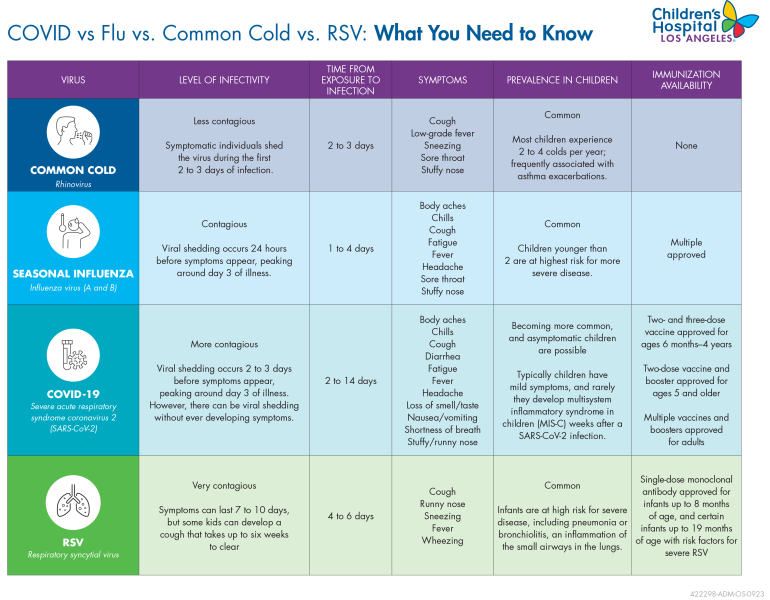
Winter brings with it a surge in respiratory sicknesses, leaving many feeling confused and overwhelmed attempting to distinguish between the widespread chilly, influenza (flu), COVID-19, and respiratory syncytial virus (RSV). Whereas these sicknesses share some overlapping signs, understanding their distinctive traits is essential for applicable remedy and stopping additional unfold. This text supplies an in depth comparability of those 4 widespread winter illnesses, introduced in a transparent, complete chart and adopted by in-depth explanations of every sickness.
Symptom Comparability Chart:
| Symptom | Frequent Chilly | Influenza (Flu) | COVID-19 | RSV |
|---|---|---|---|---|
| Onset | Gradual | Sudden | Sudden to gradual | Gradual |
| Fever | Often delicate or absent | Usually excessive (100-104°F) | Variable, might be excessive | Usually delicate or absent, could also be excessive in infants/aged |
| Headache | Gentle, occasional | Usually extreme | Can happen | Occasional |
| Muscle aches | Uncommon | Frequent, usually extreme | Can happen | Occasional |
| Fatigue | Gentle | Extreme, debilitating | Variable, might be extreme | Variable, might be extreme in infants/aged |
| Sore throat | Frequent | Frequent | Can happen | Frequent |
| Cough | Often delicate, dry | Usually extreme, dry or moist | Variable, might be dry or moist | Usually extreme, wheezing doable |
| Runny nostril | Frequent, clear | Could also be current | Much less widespread | Frequent, usually clear |
| Congestion | Frequent | Frequent | Can happen | Frequent |
| Physique aches | Uncommon | Frequent | Can happen | Occasional |
| Sneezing | Frequent | Much less widespread | Much less widespread | Much less widespread |
| Diarrhea | Uncommon | Occasional | Can happen | Occasional, extra widespread in younger youngsters |
| Vomiting | Uncommon | Occasional, extra widespread in youngsters | Can happen | Occasional, extra widespread in younger youngsters |
| Lack of style/scent | Uncommon | Uncommon | Frequent | Uncommon |
| Shortness of breath | Uncommon | Can happen, particularly in high-risk people | Frequent, might be extreme | Can happen, particularly in infants/aged |
| Pneumonia | Uncommon | Can happen, particularly in high-risk people | Can happen, particularly in high-risk people | Can happen, particularly in infants/aged |
| Bronchiolitis | Uncommon | Uncommon | Uncommon | Frequent in infants and younger youngsters |
Detailed Clarification of Every Sickness:
1. The Frequent Chilly:
The widespread chilly, brought about primarily by rhinoviruses, is the mildest of the 4 sicknesses. Signs sometimes develop step by step and embody a runny nostril (initially clear, then probably turning thicker and yellow-green), sneezing, delicate sore throat, and a gentle cough. Fever is often absent or delicate, and total fatigue is minimal. Most individuals recuperate inside 7-10 days with out medical intervention.
2. Influenza (Flu):
Influenza, attributable to influenza viruses (sorts A and B), is considerably extra extreme than the widespread chilly. Signs sometimes seem all of the sudden and embody excessive fever (usually over 100°F), extreme headache, muscle aches, fatigue, sore throat, and cough (which might be dry or moist). Whereas a runny nostril is perhaps current, it is much less outstanding than within the widespread chilly. The flu can result in severe problems, notably in high-risk people (aged, younger youngsters, pregnant girls, these with continual well being circumstances), together with pneumonia and bronchitis. Antiviral medicines might be efficient if began early.
3. COVID-19:
COVID-19, attributable to the SARS-CoV-2 virus, presents a variety of signs, from delicate to extreme. Onset might be gradual or sudden. Frequent signs embody fever, cough (dry or moist), fatigue, lack of style or scent (anosmia/ageusia), headache, muscle aches, sore throat, and shortness of breath. Gastrointestinal signs like diarrhea and vomiting may happen. Extreme instances can result in pneumonia, acute respiratory misery syndrome (ARDS), and even loss of life. Vaccination and antiviral therapies can be found to cut back the severity of sickness and stop problems.
4. Respiratory Syncytial Virus (RSV):
RSV is a standard virus that often causes delicate, cold-like signs. Nonetheless, it may be notably harmful for infants and younger youngsters, older adults, and people with underlying well being circumstances. Signs sometimes develop step by step and embody runny nostril, cough (usually extreme), and typically wheezing. Fever could also be current, but it surely’s usually delicate, particularly in older youngsters and adults. In infants and younger youngsters, RSV can result in bronchiolitis (irritation of the small airways within the lungs) and pneumonia, requiring hospitalization in extreme instances. Therapy focuses on supportive care, similar to hydration and oxygen remedy.
Differentiating the Diseases:
Whereas the symptom chart supplies a useful information, it is vital to do not forget that there might be important overlap between these sicknesses. Some people would possibly expertise atypical signs, making prognosis difficult. For instance, an individual with a light case of the flu may not have a excessive fever, whereas somebody with COVID-19 would possibly expertise primarily gastrointestinal signs.
Key distinguishing options:
- Lack of style/scent: This can be a robust indicator of COVID-19, though it is not at all times current.
- Severity of signs: The flu usually causes extra extreme signs than the widespread chilly, whereas COVID-19 can vary from delicate to extreme.
- Shortness of breath: Whereas shortness of breath can happen with the flu and RSV, it is extra generally related to COVID-19, particularly in extreme instances.
- Age group: RSV is especially regarding in infants and younger youngsters, whereas the flu poses a better danger to older adults and people with underlying well being circumstances.
When to Search Medical Consideration:
It is essential to hunt medical consideration when you expertise:
- Problem respiration or shortness of breath
- Persistent ache or strain within the chest
- New confusion
- Incapacity to wake or keep awake
- Bluish lips or face
- Extreme or worsening signs
Prevention:
Training good hygiene, similar to frequent handwashing, protecting coughs and sneezes, and avoiding shut contact with sick people, is important in stopping the unfold of all 4 sicknesses. Vaccination is out there for the flu and COVID-19, and these are extremely advisable, particularly for high-risk people. There may be at present no vaccine for the widespread chilly or RSV, however supportive care and preventative measures can assist decrease the severity and unfold of those sicknesses.
Conclusion:
Understanding the nuances of chilly, flu, COVID-19, and RSV signs is essential for applicable self-care and looking for well timed medical consideration when crucial. Whereas this text supplies a complete overview, it is not an alternative to skilled medical recommendation. If you’re involved about your signs, seek the advice of a healthcare supplier for correct prognosis and remedy. Keep in mind, prevention is essential, and working towards good hygiene and getting vaccinated when applicable can considerably scale back your danger of contracting these winter sicknesses.
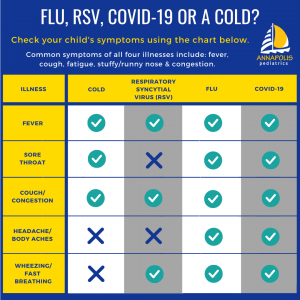
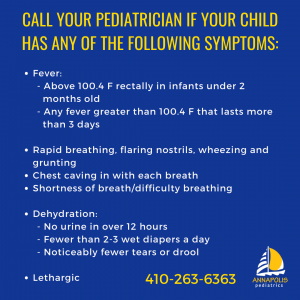
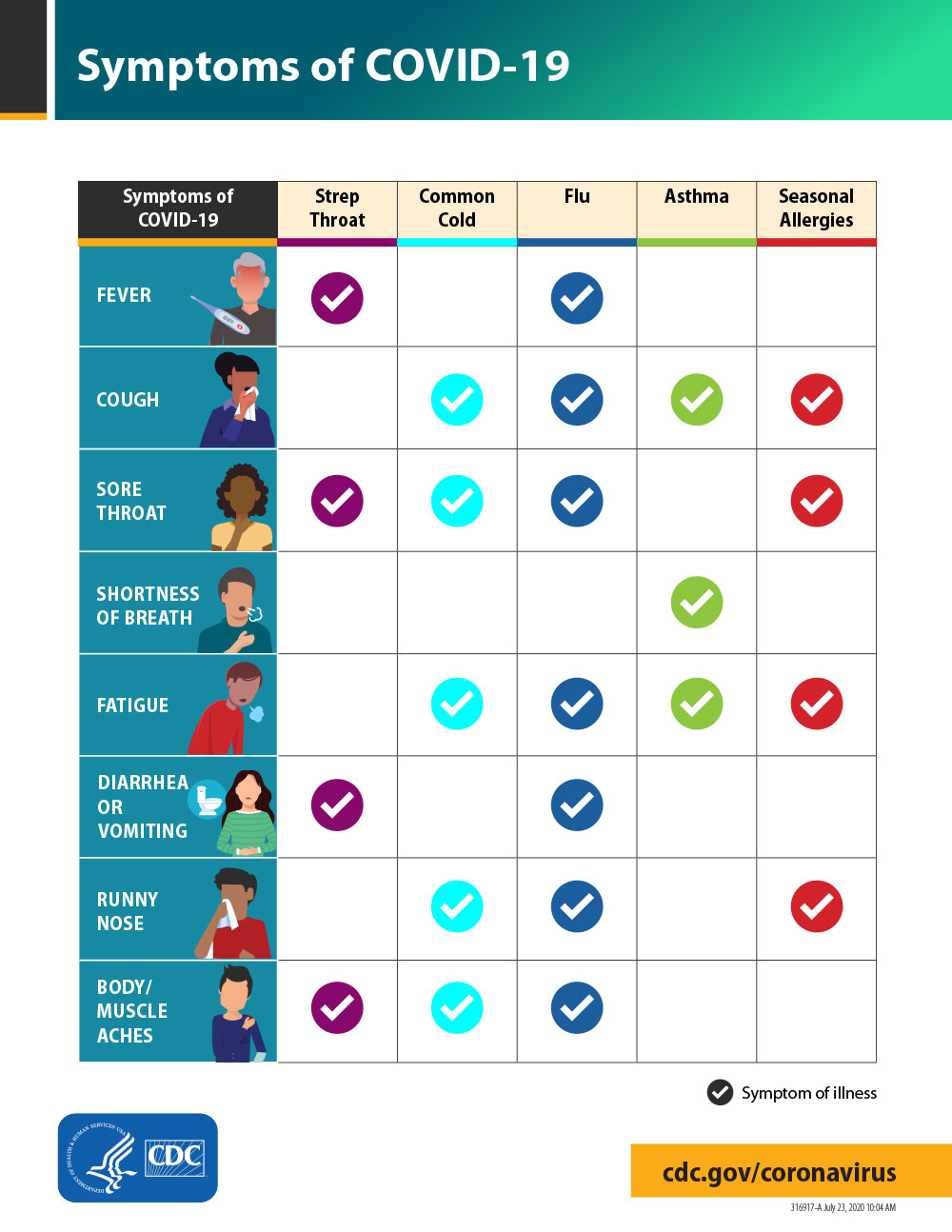

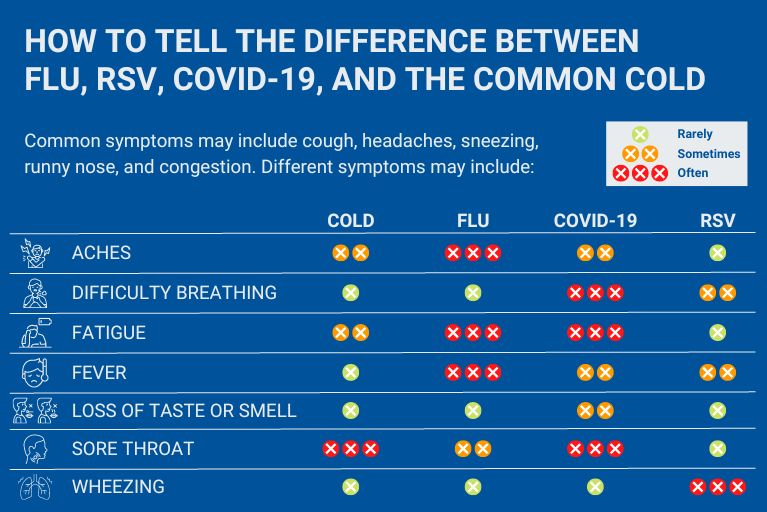


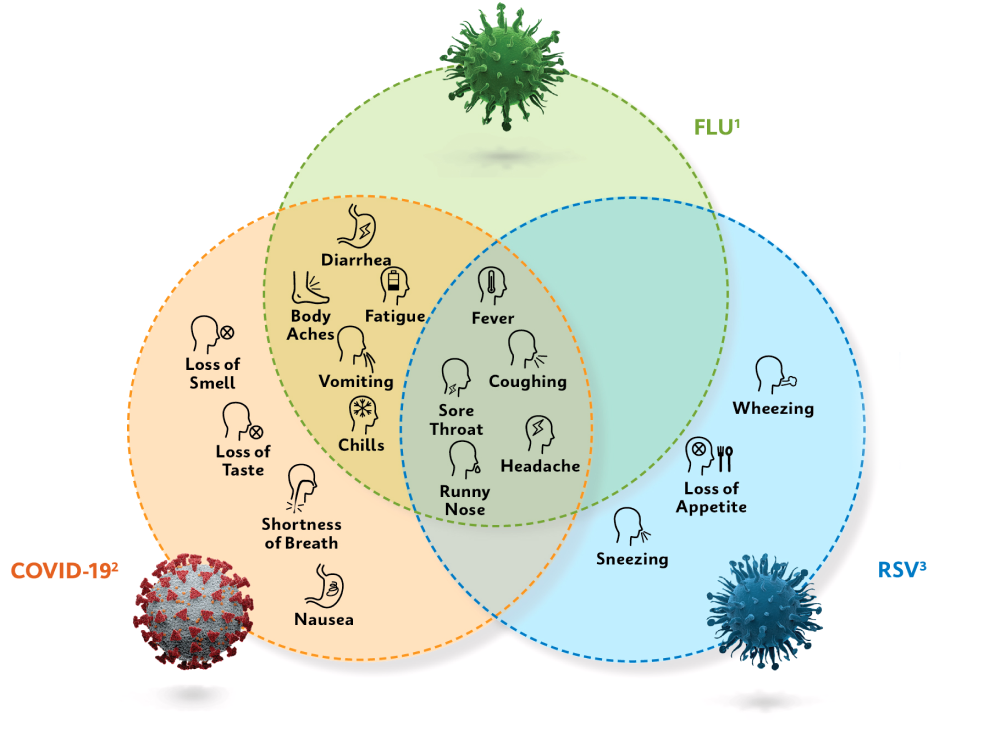
Closure
Thus, we hope this text has offered helpful insights into Decoding the Winter Diseases: A Complete Information to Chilly, Flu, COVID-19, and RSV Signs. We respect your consideration to our article. See you in our subsequent article!